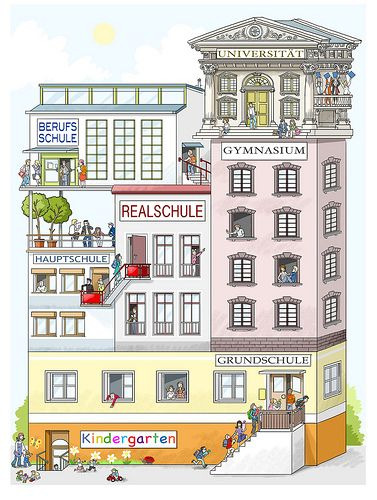Note
Thank you for the answer spider squad!
Ren, I've gone for a few weeks and you've already converted someone. Not surprised, haha. (@spider squad: Did you ever prank Ren? And if so, did you get away with it?)
Ren likes converting people, it would seem. At this point it might be a hobby - she surely is able to convert many to her nefarious cause of ruining plans of those who consider themselves better than all.
It’s satisfying.

As for pranking, no, we never pranked Ren. Well, not successfully anyways - her situational awareness is always high, since she’s a shinobi, and prank-scares don’t work either. She’s just not afraid of the things we’re able to throw at her. Frankly, her fears aren’t something we could utilize against her without some high-tier genjutsu, but then - Sharingan.
We do prank townspeople though. Ren hates civilians and we have free-pass to scare and prank the ever-loving shit out of them, and being a literal army of giant spiders, it’s easy.
And amusing.
- with love, Cobalt and Anri.
78 notes
·
View notes
Text
the “___ change my mind” guy sitting at a desk is Steven Crowder who is literally a deep conservative “comedian” and the biggest transphobe of 2018 so can we NOT use that meme anymore thanks. he literally calls trans people tr**** in some of his videos and refers to caitlyn jenner (I may not like her but Christ) as a transgender f@scist because she transitioned and refers to her transitioning as “going full #sjw.” this meme is cancelled and not funny. use google if you don’t believe me. bye
140K notes
·
View notes
Text
Yall i just got an email from tumblr saying I interacted with accounts made by the IRA …… is this even real????
The internet is wild

78K notes
·
View notes
Text
:P
Talking with writers online
Their stories: Amazing grammar, soaring vocabulary, beautiful imagery and prose which flows like a river.
In chats: no capitalisation or punctuation, swears like a sailor, misspellings everywhere, acronyms and abbreviations every five words, idek
263K notes
·
View notes
Photo
What I aspire to be.

Funny Memes. Updated Daily! ⇢ FunnyJoke.tumblr.com 😀
4K notes
·
View notes
Text
@ihaveneverbeensosane Thank you.
just in case you didnt know

94K notes
·
View notes
Text
"You need to clean your room again."
"I swear to God I just blinked," Luck, your younger sibling sighed.
Strangely, God has decided to bless you with “extremely chaotic” luck; when you ask what that means, God simply replies “oh, you’ll find out soon enough.”
6K notes
·
View notes
Text
Unless one of the names is your own.
You are born with two names tattooed on you body somewhere, one of your soulmate and one of the people that will eventually kill you. There is no way to tell who is who.
5K notes
·
View notes
Text
German culture is looking for the Loch in your Berliner before you beiß rein so that the Marmelade doesn’t pflatsch out
3K notes
·
View notes
Link
Glauben Sie er wird rumkrächzen?
In other news: Ed Sheeran ist nicht gut zu vögeln.
217 notes
·
View notes
Text
"Spiel nicht die beleidigte Leberwurst." Don't play the offended liver sausage. - Basically: Stop being a whiny loser.
In Germany we don’t say “I don’t care” we say “Das ist mir Wurst” which roughly translates as “This is sausage to me” I think that’s beautiful.
503K notes
·
View notes
Conversation
reading german: wait where's the fucking verb gon- oh there it is
writing german: der die das ?? dem den ?? die das ?? dem ?? who knows
listening to german: what bloody dialect / accent is this
speaking german: RINDFLEISCHETIKETTIERUNGSÜBERWACHUNGSAUFGABENÜBERTRAGUNGSGESETZ
6K notes
·
View notes
Text
Also WE in Berlin Call breadrolls "Schrippen". The white 17 cents kind you find in nah und gut.
And for the record, it is die Butter, die Schorle, and die Nutella. Please don't break my heart over this.
I think the biggest german discussion is when you meet someone from a different area in Germany and they call things differently and you are just like “nooooo that is not what it’s name is!!!”
But the other person just won’t see your point because they think the same you think.
Friendship can break over this folks.
20K notes
·
View notes
Photo
What about the Sekundarschule? And I thought there were no more Realschule.

The German school system http://ift.tt/2i8UkTq
389 notes
·
View notes
Note
Is that why everything in Germany says "made in Germany" on it but it's in English? lol
I’m going to quote from DW:
“125+ years of ‘Made in Germany’
A little label on German products was supposed to keep them from gaining popularity in Great Britain. But the scheme backfired: the ‘Made in Germany’ trademark eventually made items sell like hot cakes.
The “Made in Germany” label is not a German invention. It came about as part of the British Merchandise Marks Act, which took effect on August 23, 1887. The act aimed to ensure that all foreign products - which could potentially threaten the success of British merchandise - were branded with a label. It was an attempt to prompt British buyers to “buy British.” Each trading nation that wanted to do business in Great Britain had to label its products with their country of origin.
“This was particularly aimed at Germany because people suspected that Germans were copying British products,” Werner Abelshauser, economic historian at the University of Bielefeld in Germany, told DW. “It affected cutlery, scissors and knives manufactured in Solingen, for instance, but it also affected machinery made in Saxony.”
Protection and defenseAbelshauser believes that two notions played a role in creating the law: on the one hand, there was the aim to protect British consumers from buying shoddy imitations of the high-quality cutlery made in Sheffield. On the other hand, German mechanical engineering - which was already superior to the British even then - was supposed to become stigmatized by being given a negative label.
The plan backfired. The label “Made in Germany” ultimately developed into a sign of quality, though it took a while. In the Madrid Agreement Concerning the International Registration of Marks of 1891, most trading nations agreed to ban false information about origins from being printed on products. Products were not to be part of “false flag operations.” Each member nation of the pact agreed to use its own “Made in …” label.
When the First World War began in 1914, the “Made in Germany” label grabbed more attention: merchandise with this marking was not allowed to be offered for sale on markets controlled by the British and their allies. But the real triumph of the label did not occur until after Word War II - when people realized that Germany, unlike the United States, aimed to offer not mass-produced items, but focus instead on its ability to provide quality work and “post-industrial custom-tailoring,” as Abelshauser describes it.
Quality and customized work“The German economy is - still, even today - specialized in close customer relations,” said Abelshauser. “It delivers according to exact requirements: whether complete installations, infrastructure projects, or intelligent machines.” It’s a total contrast to systems of mass production. The more popular the products manufactured in this fashion became, the more assertively German businesses began using the “Made in Germany” label for marketing and advertising. The method worked well. The label continues to be well-respected even today, and is a significant reason people choose to buy a product, Abelshauser maintains - especially in industries where German products are world leaders: vehicle and machine engineering, electronics and chemicals.
Highlighting strengthsIn this context, economic historian Abelshauser points out a major misconception. Those who believe they suffer disadvantages from trading partners copying their products are wrong, he says. It’s a notion enjoying particular popularity in Germany right now with regard to China. But from an economic-historical perspective, it’s just not true in his view. The German export economy has never made its earnings from trading with less developed countries, but instead, nearly always with those benefitting from the same level of development, the historian stressed. “We should actually be hoping that China will achieve our level so that we can really get going doing business with them.” The greatest benefit for all comes when trading partners concentrate on their own core strengths. The logic of economics can sometimes be that simple.” Source: http://www.dw.com/en/125-years-of-made-in-germany/a-16188583
192 notes
·
View notes
Text
German vs. Japanese Style
4 differences between Japanese and German approaches to work, communication and customer service by Pernille Rudlin, Oct 31, 2014
There are well-known similarities between Japan and Germany - they are both manufacturers of exports which are in demand across the world, they have excellent engineering skills and leadership in manufacturing and craftsmanship. Furthermore, both are serious about their work, precise in time keeping and execution of their work, and are reliable and trustworthy. Many German and Japanese companies are similar - Toyota and Volkswagen, BMW and Honda, Thyssen Krupp and JFE Steel, BASF and Mitsubishi Chemical, Siemens and Hitachi, Leica and Nikon, etc. Both countries recovered after WWII through their hardworking attitudes.
So says Ulrike Schaede, Professor of Japanese Business at the Graduate School of International Relations and Pacific Studies at the University of California, San Diego. However she also sees four fundamental differences, particularly with regard to the average white collar worker.
1. Life priorities. Most Germans (so long as they are not consultants or lawyers or top executives) will leave work somewhere between 5 and 6 pm at night, so they can return home to eat dinner with their families or meet friends. However it is almost unheard of for a Japanese salaryman to leave at such a time on a regular basis. Even without counting “service” overtime (unpaid) that most Japanese put in, the average working year is 350 hours longer in Japan than in Germany.
This is because Germans believe that they have a contract which pays them for 40 hours of work a week with their employer and therefore if an employer wants more hours, then they should pay more. If a Germany employee can’t finish all their work on time, then they will either try to work more efficiently, even skipping lunch, or they will blame the employer for giving them too much work to do. Work life balance in Japan has come to mean how to have better day care facilities so women can work, but in Germany it means a good balance between work and private life for all employees.
2. Process and result. Both Japanese and Germans believe there is a correct way of doing things. Consumers read instructions for the products they have bought and workers obey the rules. But the big difference is that Germans also value the result and getting to the result in the most efficient way. So they are fine if someone finds a quicker way to do something. If too long is taken on a business process, they start to become impatient. in fact they become downright rude. However for the Japanese, the process is just as important as the result. It should always be done the same way by everyone, then no one will feel left out. For a new way to be accepted, everyone has to agree. There is no room for individual initiative.
3. Say what you think. Germans on average are much more direct than most other nationalities. In fact they like to share opinions with others. Japanese people feel “debate” has negative connotations. Schaede says she has found it very hard to have discussions about politics world affairs or business with Japanese people, which to Germans means it is hard to make friends.
4. Customer service. German customer service is the exact opposite of Japanese customer service. Whereas a Japanese server might say “I am sorry to have kept you waiting”, in Germany the customer expects to have to wait to be served. In fact if you turn up too close to closing time in a shop, you might be refused service. The belief is that shop assistants have rights too - to go home on time. There is no concept that the customer is more important than the employee.
As Schaede says - and as a cross cultural consultant, who am I to disagree - there are two learnings from this. One is the importance of understanding cross cultural differences at a profound level if you are going to do business across borders. The second is that when you have a multicultural team each will have different priorities and different processes to reach a result. These are deep rooted and it will be difficult to bring everyone round to one point of view.
As seen on Japan Intercultural Consulting.
935 notes
·
View notes






